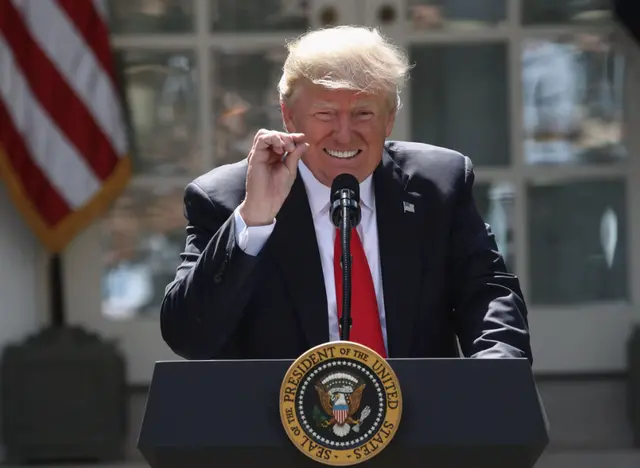APD writer Lu Jiafei, Lin Xiaochun
U.S. President Donald Trump may have fulfilled a campaign promise to some supporters, but he broke a more crucial promise the United States had made to the world.
Standing at the Rose Garden in the White House Thursday afternoon, Trump ended the almost 5-month-old frenzied speculation across the world and delivered a disappointing news: he was withdrawing the United States from the 2015 Paris Agreement on climate change.
By doing so, the United States becomes the third only country in the world that does not commit itself to cutting greenhouse gas emissions to tackle a global issue facing the humanity.
The other countries which do not participate in the Paris Agreement include Syria, a country stuck in long-term internal conflicts and Nicaragua, who refused to join because it regarded the Paris Agreement as not ambitious enough.
As to the United States, Trump made it clear on Thursday that he decided to leave the agreement because of the "draconian financial and economic burdens" on American people and that the decision fulfills his campaign promise to "put America first."
At one point of his speech, he even proclaimed that the Paris Agreement "hamstrings" the United States while "empowers" other countries, and bashed the agreement for including "another scheme to redistribute wealth out of the United States" by committing the developed countries to offering financial support to developing countries.
The finger-pointing and bashing came as no surprise from a U.S. president who once called the climate change a "hoax," but his rationale behind the withdrawal is shaky at best, since almost all developing countries, whose economies depend more on higher-emitting industries such as manufacturing, have also participated.
To put it in another way, all but two countries in the world made a promise to contribute and sacrifice in 2015 for the future of the planet and our younger generations.
On June 1, 2017, unfortunately, the global league of warriors against the climate change loses a crucial member.
For supporters of Trump's decision, the effect of U.S. withdrawal is believed to be exaggerated since the United States has already replaced coal with natural gas and other renewable energy sources.
The Trump administration had unfortunately underestimated the fallout of its controversial move, U.S. experts told me.
According to John Sterman, professor at MIT Sloan School of Management, U.S. withdrawal from Paris risks initiating a cascade of goal erosion that could unravel the agreement.
To begin with, U.S. withdrawal from the Paris Agreement creates uncertainty for businesses and governments around the world about investment opportunities in the solar, wind and other emerging green energy industries.
Secondly, if the United States backs away from offering financial aids to developing countries, it would hamper global efforts to help developing nations fund the investment in renewable energy they need to leapfrog the harmful fossil economy.
Last but not least, U.S. withdrawal strengthens arguments that developing nations should not cut emissions if developed nations don’t cut theirs first.
After spending one year in Palestine covering the Israeli-Palestinian conflict between 2013 and 2014, Jiafei Lu moved to Washington, D.C. in 2015 and started covering the U.S. presidential election till the very end of Donald Trump's upset victory early November, 2016. Since then, he has been working as a diplomatic correspondent for Xinhua.
 简体中文
简体中文





